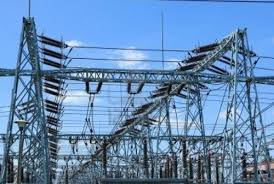More Nigerian states have joined Enugu State in announcing plans to reduce electricity tariffs within their territories following the new order issued by the Enugu Electricity Regulatory Commission (EERC) that lowered the tariff for Band A customers from N209 per kilowatt-hour to N160 per kilowatt-hour. The tariff reduction is scheduled to take effect on August 1, 2025, for residents under MainPower Electricity Distribution Limited.
However, this move has faced stiff opposition from power generation companies (Gencos) and distribution companies (Discos), who warn that the decision could worsen the financial crisis in the power sector. Gencos claim that the industry is already weighed down by debts exceeding N5 trillion, with concerns that further tariff reductions could cripple operations.
The Association of Power Generation Companies, led by its Chief Executive Officer, Joy Ogaji, issued a statement condemning Enugu’s tariff decision, stating it sets a dangerous precedent for other states. Ogaji argued that the N160/kWh tariff does not reflect the true cost of electricity generation, especially since there is no formal policy on government subsidies but rather accumulated debts owed to Gencos.
Despite the warning, more states with independent electricity regulatory powers under the Electricity Act 2023 have shown interest in adopting similar tariff cuts. States such as Ondo, Plateau, and Lagos have hinted at their intentions to reduce tariffs. Ondo State Commissioner for Energy and Mineral Resources, Johnson Alabi, confirmed that the state is working on determining its own tariffs after signing power purchase agreements. He disclosed that the state is already setting tariffs for prospective investors.
Plateau State Electricity Commission Chairman, Bagudu Hirse, stated that reducing electricity tariffs to ease the burden on residents is a priority for the state. He noted that the commission, recently inaugurated by Governor Caleb Mutfwang, would commence efforts to lower tariffs in line with the governor’s vision for power sector reforms.
Lagos State is also reviewing the tariff adjustment made by Enugu. Lagos Commissioner for Energy and Mineral Resources, Biodun Ogunleye, stated that the state is studying the figures and would soon announce its own tariff plan. He explained that Lagos must be cautious due to its strategic importance, as it accounts for nearly 50 percent of national power consumption.
Meanwhile, Ekiti State has chosen to maintain the current Multi-Year Tariff Order issued by the Nigerian Electricity Regulatory Commission (NERC). The state’s Commissioner for Infrastructure and Public Utilities, Professor Bolaji Aluko, explained that Ekiti will remain under NERC’s tariff structure until all states exit the national pricing system.
Discos have pushed back against the states’ moves, insisting that any reduction in tariffs must come with a commitment by the states to pay the resulting shortfalls. An unnamed official from one of the Discos described Enugu’s decision as “over the bar,” questioning how the state plans to cover the subsidy gap without federal government backing.
He stressed that electricity production costs exceed N200 per kWh, and setting tariffs at N160 per kWh without compensation mechanisms would dissuade investors from entering the power sector. He warned that states enacting such policies without concrete subsidy plans risk nullifying their efforts, as subnational laws that contradict the Nigerian Constitution could be declared void.
EERC Chairman, Chijioke Okonkwo, defended the tariff cut, explaining that the commission used a transparent cost-reflective methodology that accounted for the federal government’s ongoing subsidy at the generation level. He revealed that, with the subsidy in place, the average delivery cost for electricity in Enugu is just over N94 per kWh. Okonkwo, however, cautioned that the affordability of the new tariffs might not last if the federal subsidy is withdrawn.
Power sector experts have raised concerns about the Enugu decision. Tayo Adegbenle, founder of PowerUp Nigeria, expressed doubts about EERC’s data and assumptions, particularly the reliance on federal subsidies that may not be sustained. He referenced models like South Africa’s ESKOM, where municipalities manage local tariffs based on the national grid’s cost prices, as a comparable system that Nigeria could adapt.
Bode Fadipe, another power sector stakeholder, noted that while the situation is still developing, the EERC may have achieved a policy objective with the tariff reduction, but the full impact remains to be seen.
This unfolding scenario comes as Nigeria continues to navigate the complex transition of its power sector towards decentralisation, enabled by the Electricity Act 2023, which grants states control over their electricity markets. Seven states—Enugu, Ondo, Ekiti, Imo, Oyo, Edo, and Kogi—currently operate independent electricity markets, with Lagos, Ogun, Niger, and Plateau expected to complete transitions by September 2025.
The Federal Government has budgeted N900 billion for electricity sector support in 2025, but Gencos argue that this amount is insufficient to cover even half of the sector’s annual generation invoices, which average N250 billion monthly. Without a clear and sustainable subsidy mechanism, stakeholders fear that tariff cuts by states may strain the power sector further, leading to reduced investments and possible blackouts.
As the debate continues, the issue highlights the need for clear policies, robust frameworks, and collaboration between federal and state regulators to ensure that tariff reductions do not compromise the financial stability of Nigeria’s power sector.
